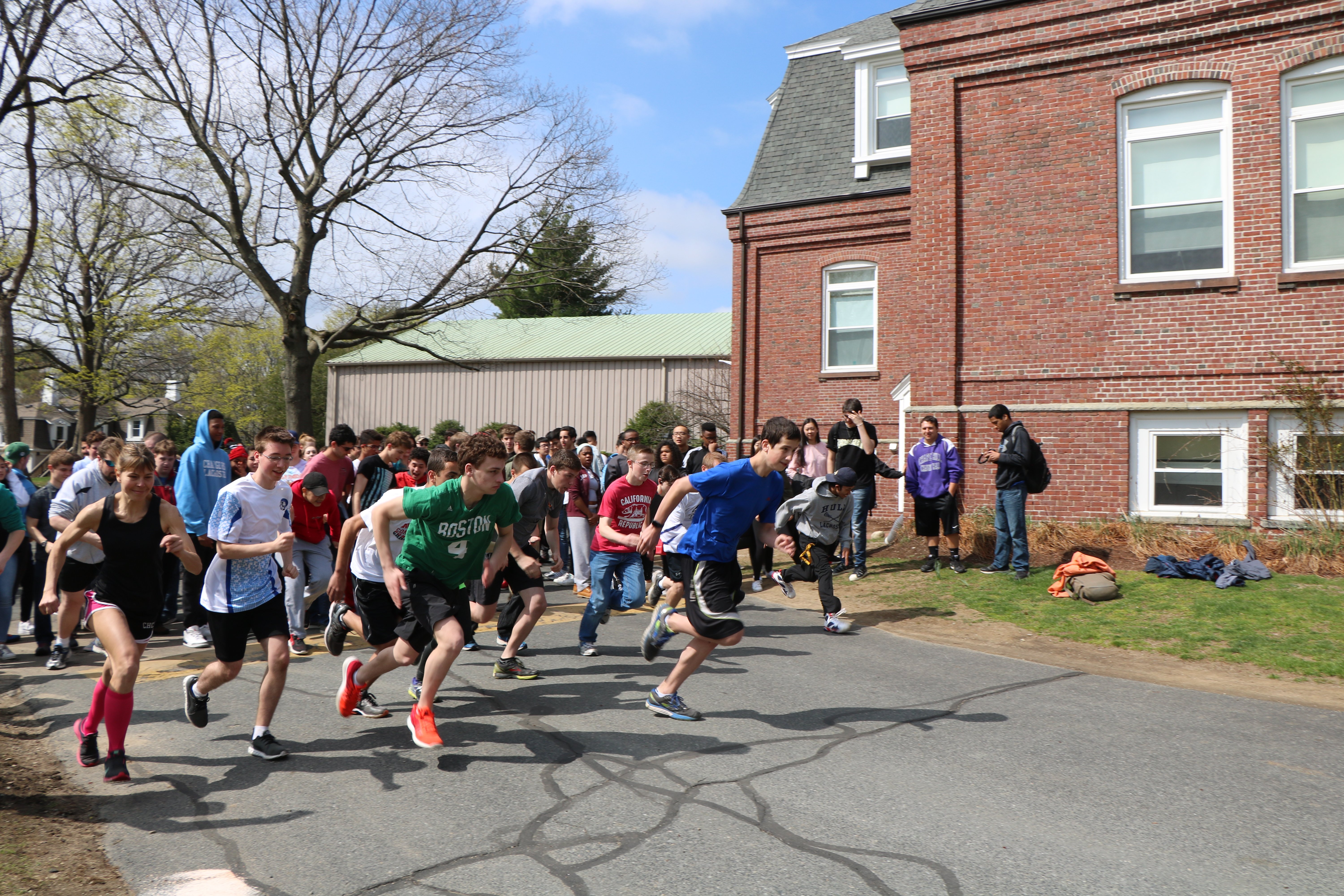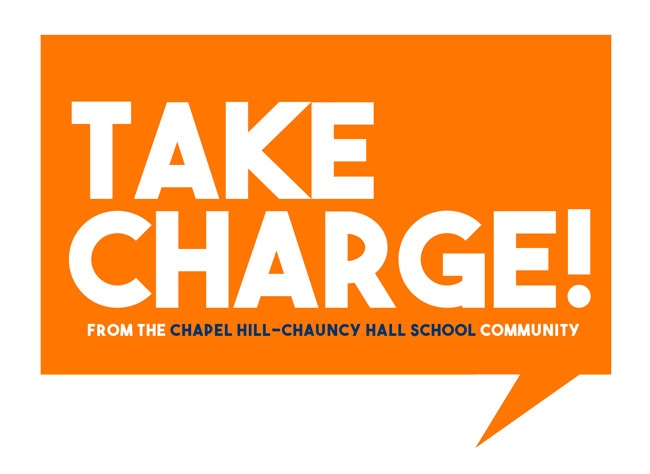Trouble focusing in class? Woke up late and didn’t have time to eat breakfast before an important presentation? Feeling overwhelmed with trying to balance classes, co-curriculars, and homework? There’s good news - you can help gain control and turn your day around by fueling up and getting some exercise!
-1.png?width=550&name=Blog%20Title%20(4)-1.png)
GET MOVING

Numerous studies indicate a correlation between academic performance and physical activity. The United States Centers for Disease Control and Prevention (CDC) notes that when adolescents participate in at least 60 minutes of physical activity per day, multiple health benefits accrue. Regular physical activity builds healthy bones and muscles, improves muscular strength and endurance, and improve self-esteem while decreasing stress.

Beyond these known health benefits, physical activity has a beneficial influence on academic performance. The connection between physical activity and academic performance is less known, but studies show that exercise can have an impact on cognitive skills, attitudes, and academic behavior - all of which are important components of improved performance in the classroom.
EATING WELL

Another component of a healthy lifestyle is, of course, proper nutrition. Some may not know, but there are multiple studies which indicate a direct connection between academic performance and a balanced diet. Research shows that a balanced diet improves brain capacity and maximizes cognitive capabilities in school-age children, especially teenagers.
Various studies show that foods high in vitamin D, iron, and omega-3 have essential roles in brain development, functioning, and memory improvement. I’ll give you a few examples of these nutrient-rich “brain foods”:
- Vitamin D: salmon, mushrooms, and eggs (specifically the yolks)
- Iron: beans, lentils, cashews, and spinach
- Omega-3: fish, nuts, and seeds (such as chia and flax)
Another “brain food” is fiber. Foods high in fiber keep energy levels stable and keep you feeling fuller longer. One of the greatest benefits of fiber-rich foods is how it won’t give you a crash later in the day, unlike processed foods and simple sugars. Processed foods and simple sugars may seem most “convenient” on a busy morning, but they will only promote a rapid spike in blood sugar, which stimulates the release of insulin, in turn causing blood sugar to drop - leading to the inevitable “sugar/caffeine crash”, that we all know too well.
WHAT THIS MEANS FOR STUDENTS
I know you’re thinking, “Why should I care? My diet doesn’t affect my academic standing. I don’t have time for additional exercise, and I’m far too busy with school and co-curriculars.” I surveyed the CH-CH student body to learn their stance and opinion on the relationship between nutrition, exercise, and academic performance. Let’s break down what I discovered:

As a whole, students were not completely convinced there is a connection between good nutrition, exercise, and academic performance. This doesn’t come as a surprise, and it’s important to remember there is no “one size fits all” for this correlation. That being said, because the research is out there, I continue to stress the importance of exercise and proper nutrition to my students.
To help them understand this concept better, I always compare the human body to a car. Can a car run properly with no fuel (gas)? Can a body run properly with no fuel (food)? Also, if your car requires premium gas, will it run properly if you use regular unleaded? The same applies to your body - it’s not only IF you’ve eaten, but WHAT you’ve eaten - and on a school day, it’s all about what you have for breakfast.
Although it may sound cliche, breakfast is the most important meal of the day. Eating breakfast has a positive effect on cognitive performance, particularly in the domains of memory and attention. “I feel that when I eat a good full breakfast I will be able to have more energy for all my classes, all the way to study hall,” said a CH-CH student when asked about breakfast on my survey.
Allowing yourself time in the morning to “wake up” and eat a healthy breakfast may be easier said than done, but once you get into the routine chances are you will find yourself more attentive and engaged in the classroom (especially in your 8:00 am class).
Students shouldn’t put too many limits on what they eat, because after all, their bodies are still growing. However, they should consider what they’re eating combined with other meals throughout the day. In the survey, one student noted: “Healthier foods give me more energy so that I don’t lose my attention span in class.” Luckily for CH-CH students, the Charger Café has plenty of healthy options offered at every meal. For lunch, there’s a large salad bar with tons of variety, an extensive deli bar, and wonderfully prepared salads. Personally, I find the warm options to be slightly on the heavier side but perfect for a hearty dinner.
View this post on Instagram#tacotuesday at the Charger Cafe! Thank you @flikisdining
A post shared by Chapel Hill-Chauncy Hall (@chchschool)
Here’s a great tip to plan your meals: students (and parents) can view the weekly Charger Café menu HERE.
I’ve discovered that many students associate needing to eat before exercise, however, they often don’t recognize that brain function IS exercise and needs to be properly fueled!
Some students reported they are too exhausted to do schoolwork after exercising, while others noted not having enough time in the morning to eat a proper meal before class. In my Skills and Academic Support classes, I can identify when a student has not eaten breakfast because they will tend to not utilize their time in the best way - asking about running to the school store or Charger Café instead of relevant class material. This is one of the reasons I put a high emphasis on organizational skills such as effective time management, both in and out of the classroom. Read our post 9 Time Management Tips for Students by Students here.
TO SUM IT UP
Remember, everyone is different, life is not one-size-fits-all and there is no such thing as a singular guideline for physical activity and nutritional balance. That being said, there is no reason why you shouldn’t want to put your best foot forward when it comes to your health.
Start with these two simple tips to help improve academic performance:
- Get moving and exercise for 60 minutes a day
- Start your day right by making time for a healthy breakfast
Sarah Orban is a Skills and Academic Support teacher and Anatomy & Physiology teacher at Chapel Hill-Chauncy Hall School in Waltham, MA. Learn more about the Skills and Academic Support curriculum at CH-CH.














